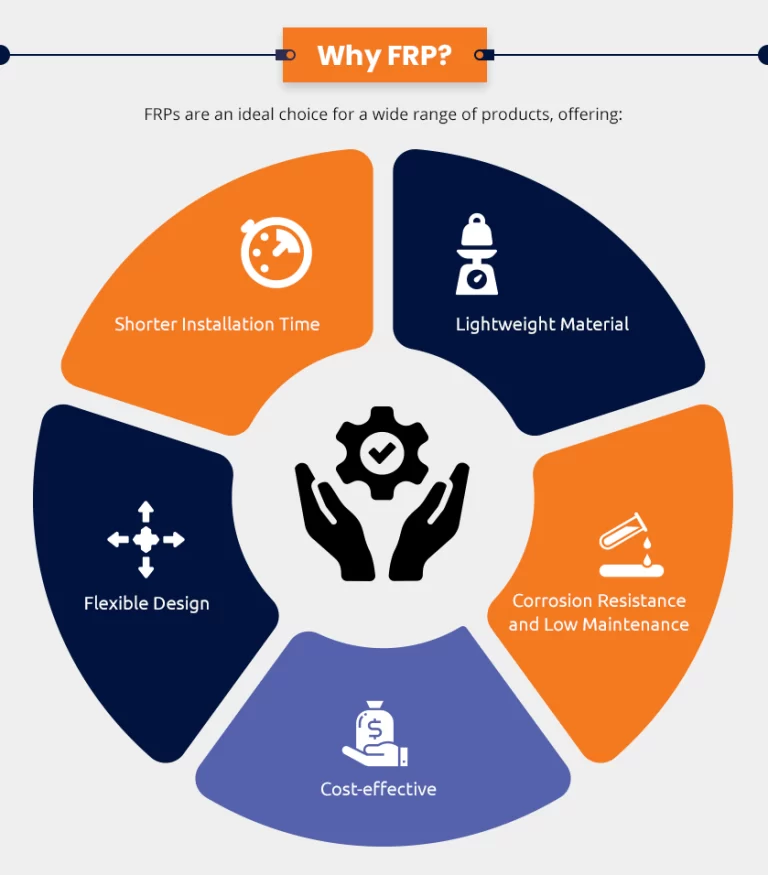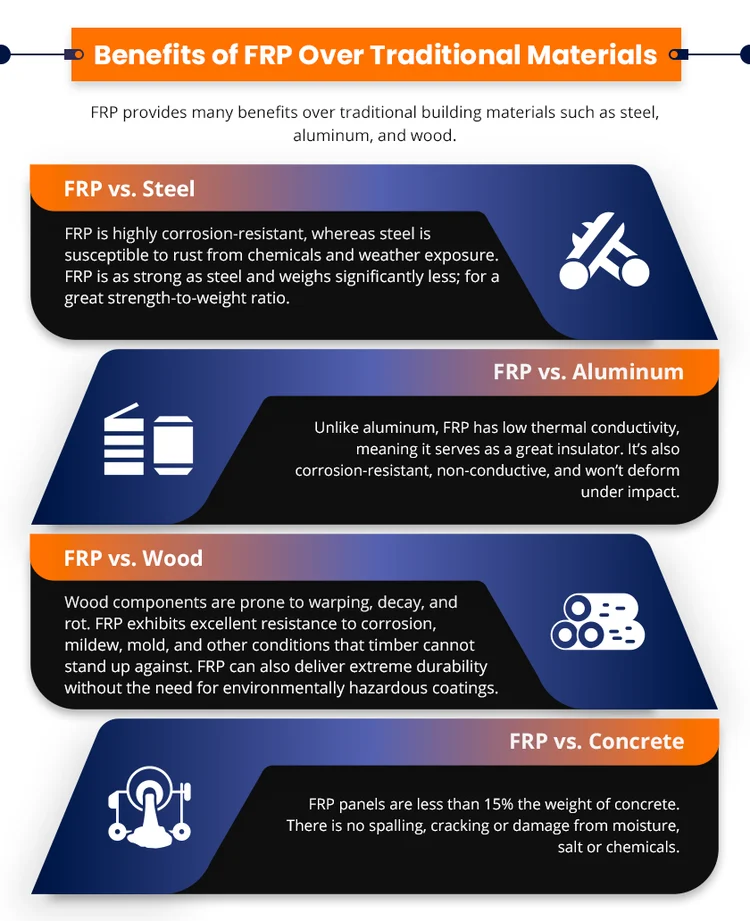Services
What Is FRP?
FRP –THE TECHNOLOGY OF THE FUTURE
Fiber-reinforced plastics (FRP) is the strongest and most durable material in the world. It is lightweight with high strength and a corrosion-resistant alternative to traditional construction materials.
FRP is an engineered material made up of polymer/epoxy resins, reinforcement fibres and additives, to create an extremely strong and durable material that finds application in several sectors. The reinforcement fibre is chosen based on the requirement and application. Carbon fibre is commonly used in aircrafts, drones and other recreational equipment. Fibreglass is predominantly used where the combination of its properties and the cost is important. Aramid and Basalt fibres are used for specific use service conditions.



